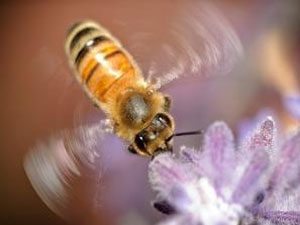《Nature》目录要览:2010-12-23出版
时间:2010-12-24 阅读: 我要评论:
Selective inhibition of BET bromodomains pp1067 - 1073
A new approach is used to target BET family bromodomains which are found in transcriptional regulators where they mediate the recognition of acetyl-lysine chromatin marks. Structural data reveal how the compound JQ1 binds to the bromodomain of BRD4. BRD4 has been implicated in a subtype of human squamous carcinomas, and JQ1 is found to inhibit the growth of BRD4 dependent tumours in mouse models.
Panagis Filippakopoulos et al.
doi:10.1038/nature09504
Abstract: http://www.nature.com/nature/journal/v468/n7327/abs/nature09504.html
Article: http://www.nature.com/nature/journal/v468/n7327/full/nature09504.html
Driving the cell cycle with a minimal CDK control network pp1074 - 1079
To investigate the core engine of the eukaryotic mitotic cycle, a minimal control network has been generated in fission yeast that efficiently sustains cellular reproduction. Orderly progression through the major events of the cell cycle is driven by oscillation of an engineered minimal CDK module lacking much of the canonical regulation.
Damien Coudreuse and Paul Nurse
doi:10.1038/nature09543
Abstract: http://www.nature.com/nature/journal/v468/n7327/abs/nature09543.html
Article: http://www.nature.com/nature/journal/v468/n7327/full/nature09543.html
----------------------
LETTERS
----------------------
Images of a fourth planet orbiting HR 8799 pp1080 - 1083
High-contrast near-infrared imaging of the nearby star HR 8799 has shown three giant planets. Here, the presence of a fourth planet, interior to and about the same mass as the other three, is reported. The system, with this additional planet, represents a challenge for current planet formation models as none of them can explain the in situ formation of all four planets.
Christian Marois et al.
doi:10.1038/nature09684
Abstract: http://www.nature.com/nature/journal/v468/n7327/abs/nature09684.html
Article: http://www.nature.com/nature/journal/v468/n7327/full/nature09684.html
Spin–orbit qubit in a semiconductor nanowire pp1084 - 1087
Motion of electrons can influence their spins through a fundamental effect called the spin–orbit interaction. Here, a spin–orbit quantum bit (qubit) is implemented in an indium arsenide nanowire, which should offer significant advantages for quantum computing. The spin–orbit qubit is electrically controllable, and information can be stored in the spin. Moreover, nanowires can serve as one dimensional templates for scalable qubit registers, and are suited for both electronic and optical devices.
S. Nadj-Perge, S. M. Frolov, E. P. A. M. Bakkers and L. P. Kouwenhoven
doi:10.1038/nature09682
Abstract: http://www.nature.com/nature/journal/v468/n7327/abs/nature09682.html
Article: http://www.nature.com/nature/journal/v468/n7327/full/nature09682.html
Atom-by-atom spectroscopy at graphene edge pp1088 - 1090
Electron microscopy has advanced to the stage where individual elements can be identified with atomic resolution. Here it is shown to be possible to get fine-structure spectroscopic information of individual light atoms such as those of carbon, and so also probe their chemical state. This capability is illustrated by investigating the edges of a graphene sample, where it is possible to discriminate between single-, double- and triple-coordinated carbon atoms.
Kazu Suenaga and Masanori Koshino
doi:10.1038/nature09664
Abstract: http://www.nature.com/nature/journal/v468/n7327/abs/nature09664.html
Article: http://www.nature.com/nature/journal/v468/n7327/full/nature09664.html
Mantle superplasticity and its self-made demise pp1091 - 1094
The unusual capability of solid crystalline materials to deform plastically (known as superplasticity) has been found in metals and even ceramics; however, no experimental studies have yet to demonstrate this behaviour in geological materials. It is now demonstrated that some synthetic rocks, which are good analogues for Earth's mantle, undergo homogeneous elongation up to 500% under subsolidus conditions. Calculations show that such superplastic flow in the mantle is inevitably accompanied by significant grain growth that can change fine-grained rocks to coarse-grained aggregates, resulting in increasing mantle viscosity and finally termination of superplastic flow.
| 《Nature》目录要览 — 2011-04-28出版 |
| 《Nature》目录要览:2011-01-20出版 |
| 《Nature》目录要览:2010-12-23出版 |
| 《Nature》目录要览:2010-12-16出版 |
| 《Nature》目录要览:2010-12-09出版 |
| 《Nature》目录要览:2010-12-02出版 |
特别声明:本文转载仅仅是出于传播信息的需要,版权归原作者所有,并不意味着代表本网站观点或证实其内容的真实性; 如其他媒体、网站或个人从本网站转载使用,须保留本网站注明的“来源”,并自负版权等法律责任; 作者如果不希望被转载或者联系转载稿费等事宜,请与我们接洽:service#environmentor.cn(请将#改为@)。
来源:Nature 作者:Environmentor (环境人 Environmentor.Cn)





